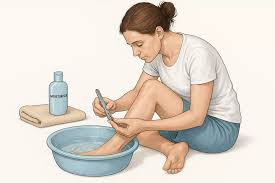Your primary care physician, or PCP, is often the first point of contact for your health needs. They are trained to address a wide range of medical concerns and provide continuous care throughout your life. Understanding the scope of their services helps you know when to schedule a visit. From preventive screenings to managing ongoing health issues, a PCP offers comprehensive support for you and your family.
Physicals
One of the most common reasons to visit a PCP is for a physical examination. These appointments are designed to assess your overall health and identify potential issues before they become serious. There are several types of physicals your doctor can perform.
An annual physical is a yearly check-up that provides a comprehensive overview of your health status. During this visit, your doctor will likely check your vital signs, review your medical history, and discuss your lifestyle habits. They may also order blood tests or other screenings based on your age and risk factors.
School physicals are often required for students entering a new school year, confirming they are healthy enough to attend. Sports physicals evaluate an athlete’s fitness to participate in strenuous activities. They typically focus on musculoskeletal health and cardiovascular function.
Weight Loss
Managing weight is a goal many people undertake, and a PCP can be a valuable partner in this process. Your doctor can help you create a personalized weight management plan based on your unique health profile. This begins with an evaluation of your current health, including your body mass index (BMI) and any existing conditions that might affect your weight.
Your physician can offer guidance on nutrition and physical activity. They may provide dietary recommendations tailored to your needs or suggest exercise routines that are safe and effective for you. The goal is to help you approach weight loss in a structured and medically supervised way.
Vaccinations
Vaccinations are a key component of preventive medicine. Your primary care physician is responsible for administering immunizations to protect you from various infectious diseases. They keep track of your vaccination history and recommend shots based on your age, lifestyle, and medical background.
For children, this typically includes a standard schedule of immunizations that protect against diseases like measles, mumps, and polio. For adults, your doctor might recommend annual flu shots, tetanus boosters, or other vaccines, depending on your travel plans or specific health risks. Keeping your immunizations up to date is a simple step you can take for your long-term health.
Pain Management
Living with pain, whether acute or chronic, can be challenging. Your PCP can help diagnose the source of your discomfort and develop a plan to manage it. The first step is to identify the underlying cause of the pain through a physical examination and, if necessary, diagnostic tests like X-rays or MRIs.
Once a diagnosis is made, your doctor will discuss various treatment options with you. This might include recommending over-the-counter pain relievers, prescribing medication, or suggesting physical therapy. For more complex cases, your PCP can refer you to a specialist, such as a pain management doctor or an orthopedist, for more advanced care.
Visit a Primary Care Physician
A primary care physician offers a wide array of services designed to support your health at every stage of life. From routine check-ups and immunizations to managing specific health concerns like weight and pain, they serve as a central hub for your medical needs. If you are looking for a healthcare provider to support your health goals, schedule an appointment with a primary care physician today.













